Project SEARCH Creates Workforce Opportunities for Young Adults with Disabilities in LYH
By Robin Sutton Anders
If we all just loved our neighbor, what a different world this would be. That’s the belief that drives Lynchburg City Schools educator Amanda Myers-Ramirez. “We say that a lot of times in our home as a family, and it’s why my husband, Brian, and I are in a position of service to our school and community.”
For the last 20 years, Myers-Ramirez has worked in special education. Today, she serves as the lead instructor for a Lynchburg City Schools Program called Project SEARCH, which is a partner with Centra Health, DARS, Stand Up Inc., and Campbell County Public Schools. Project SEARCH helps young adults with disabilities find meaningful employment, and Myers-Ramirez teaches vocational skills that are critical to Centra Health operations. “Hospitals, in general, have a large number of jobs and tasks,” Myers-Ramirez explains. “From linens to quality assurance to stocking to cooking and nutrition services and groundskeeping, there’s so much that makes a hospital run.”
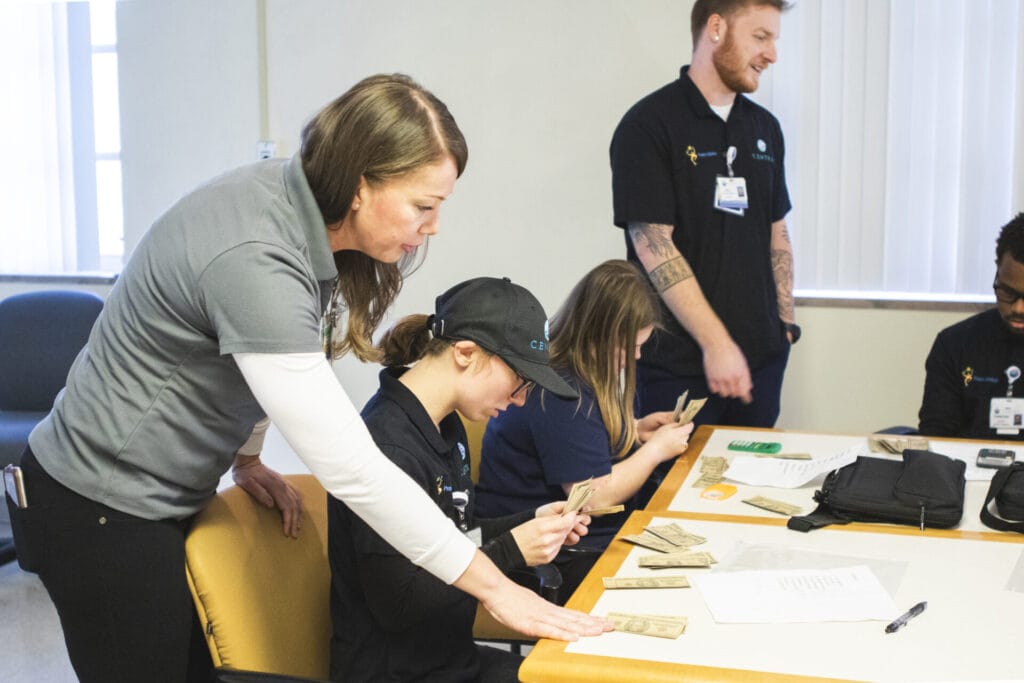
Amanda teaches her students skills like personal financing, budgeting, and paying for bills.
Typically, a third of Project SEARCH graduates are placed in a Centra facility, and the other two-thirds find employment within in their community. Myers-Ramirez emphasizes the phrase “meaningful employment” as she explains the program’s mission.
“Some students don’t live close to a hospital or want to work in a hospital,” she says. “Some may want to work with animals or children or in a library or a retail store.”
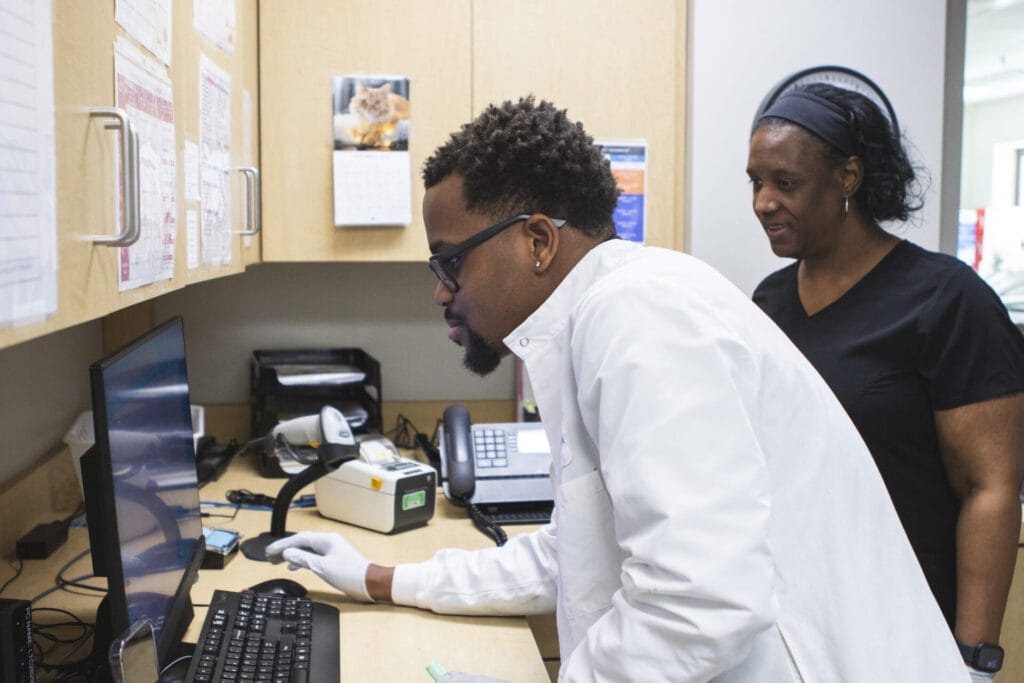
A Project SEARCH intern works in the lab department at Centra
If a student is passionate about working in retail, for example, Project SEARCH teaches them hard skills and soft skills, and then matches students with an internship that enables them to put those skills to work. “We may take them into a storeroom or gift shop and train them on a cash register,” she says. “When adults with disabilities feel empowered to find jobs, they have what most careers bring all of us—friendships, a sense of pride, a sense of purpose.”
Myers-Ramirez’s students range in age from 18-22. They have already graduated with an applied studies diploma and are participating in Project SEARCH as continuing education. Project SEARCH offers 30 different internships and strives to customize the experience for each student.
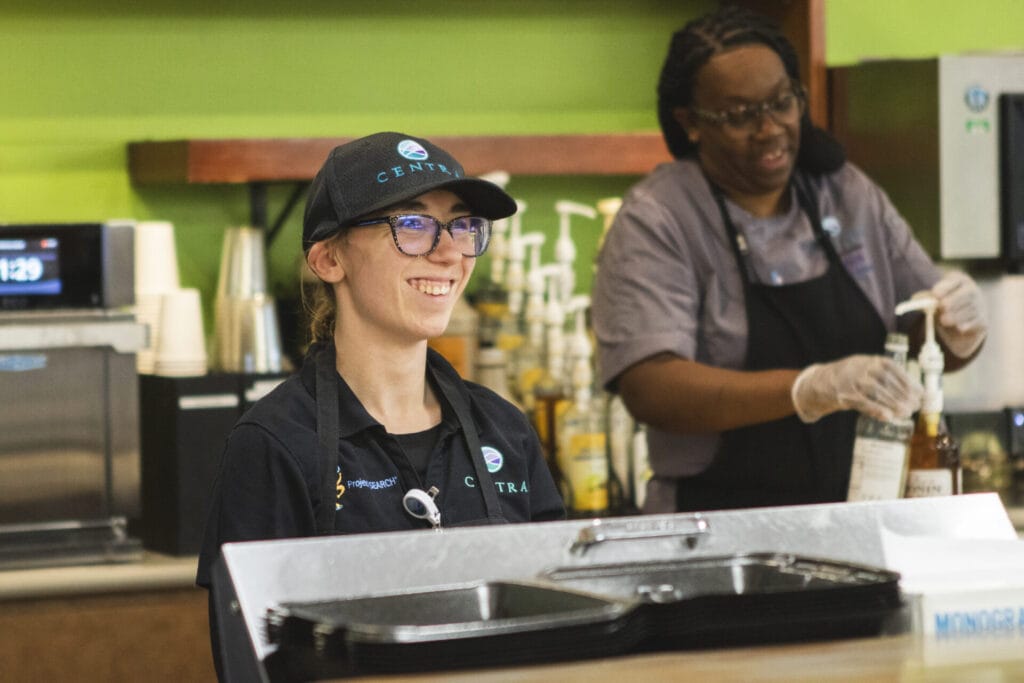
Many of the Project SEARCH interns get experience in several different Centra locations like Riverside Roasters, a cafe in Lynchburg General Hospital that serves up coffee, sandwiches, and breakfast items.
Accessibility impacts their job placement, says Myers-Ramirez. “Some students are coming from rural areas, and we look at what’s in proximity to their home, or if there’s a bus route close by. We don’t want them to have long commutes if they don’t have a driver’s license.”
In Myers-Ramirez’s experience, people with disabilities are used to others recognizing their weaknesses. Project SEARCH, on the other hand, focuses on students’ strengths. “We’ve had some great outcomes as a program,” she says. “I’ve known some students since they were young, and I’ve seen them grow to a point where they’ve now worked five to six years. We meet people where they are, and focus on building their strengths.”
As an example, she points to a visually impaired student named Chris. “Phlebotomists at the hospital were putting together lab kits, and we turned that into a customized internship.” The tactile job worked to Chris’s strengths and allowed the phlebotomists to focus on patient care. Chris loved it, and Centra created a new position for him.
“It’s amazing when you think about children with a variety of big needs when they’re born—and then flash forward to this young man in his early 20s,” says Myers-Ramirez. “Chris has his own office, and he creates these kits that help hundreds and hundreds of people in the hospital.”
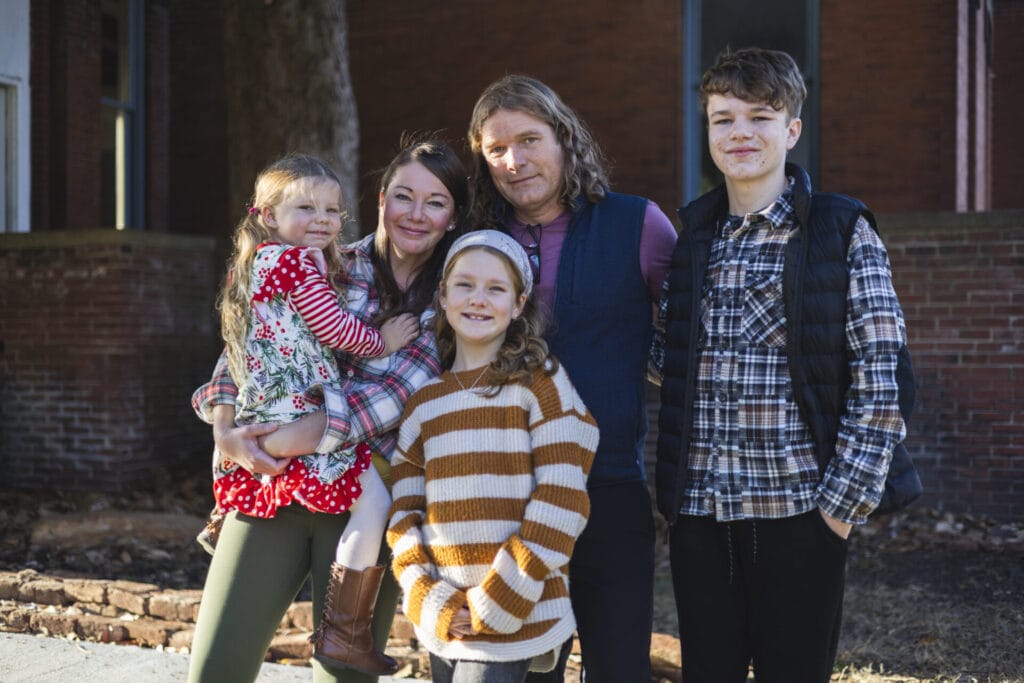
Amanda’s husband Brian, also works for LCS and their three children, (left to right) Emmie, Trulie, and Orion attend school at Lynchburg City Schools.
Myers-Ramirez understands how important it is for people to work in a meaningful job that allows them to contribute to their communities. “My husband, Brian, and I met at E.C. Glass High School in 2004 and have worked for Lynchburg City Schools since,” she says. “Between the two of us, we have served at every school in the division, and are deeply committed to the mission of LCS: ‘Every child, by name, and need, to graduation and beyond!”
Their children are also Lynchburg City Schools students. “They have had great experiences through innovative instruction and exceptional extracurricular opportunities in theatre and the arts,” she says. “There are innovative, creative, and passionate teachers who have invested in not only the academic needs of our children but also their social and emotional needs as well.”
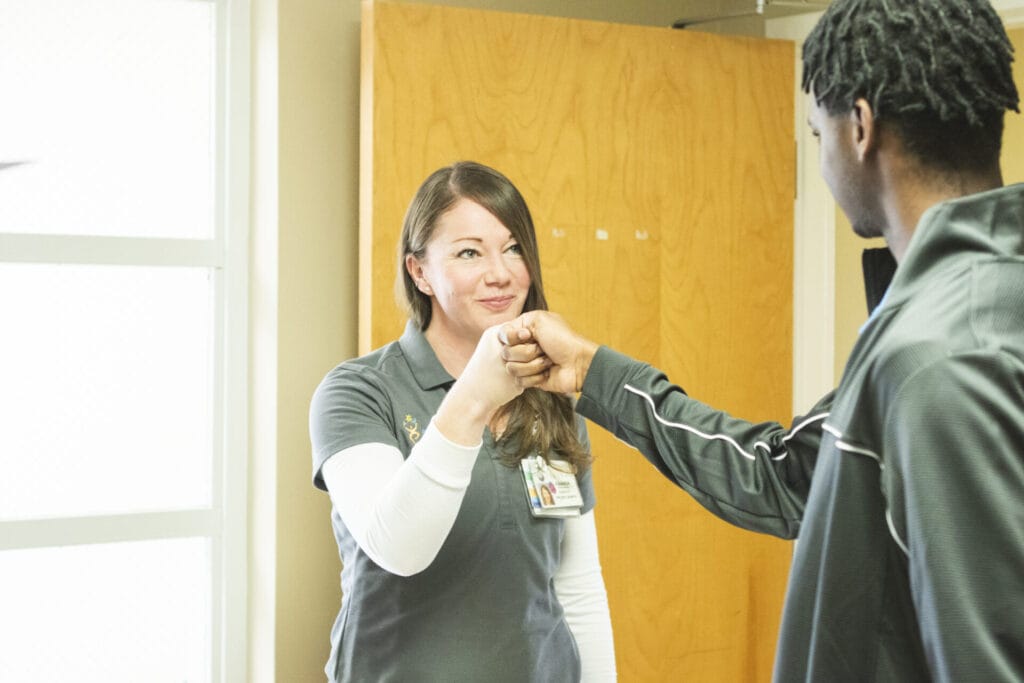
Before parting at the end of each day, Amanda checks in with each student to congratulate them on a successful day of work.
To new teachers who are just starting out, she offers this advice: “Drive the bus routes of your students. Go to community activities where the children in your classroom would go. Try to experience the community through their eyes.”
When Myers-Ramirez started teaching 21 years ago, she and the other new teachers were taken on a bus tour of the city. “It was just eye-opening. We’re teaching kids math and fractions, and some of the kids are in situations where their basic needs aren’t even being met. I think so much of our job is reaching these students, and I think it’s really hard to reach somebody until you know where they’re coming from. That’s where we should be starting—empathy and compassion for all.”
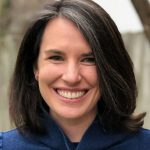
Robin Sutton Anders is a Greensboro, N.C.-based writer and the managing editor of Verdant Word Communications.